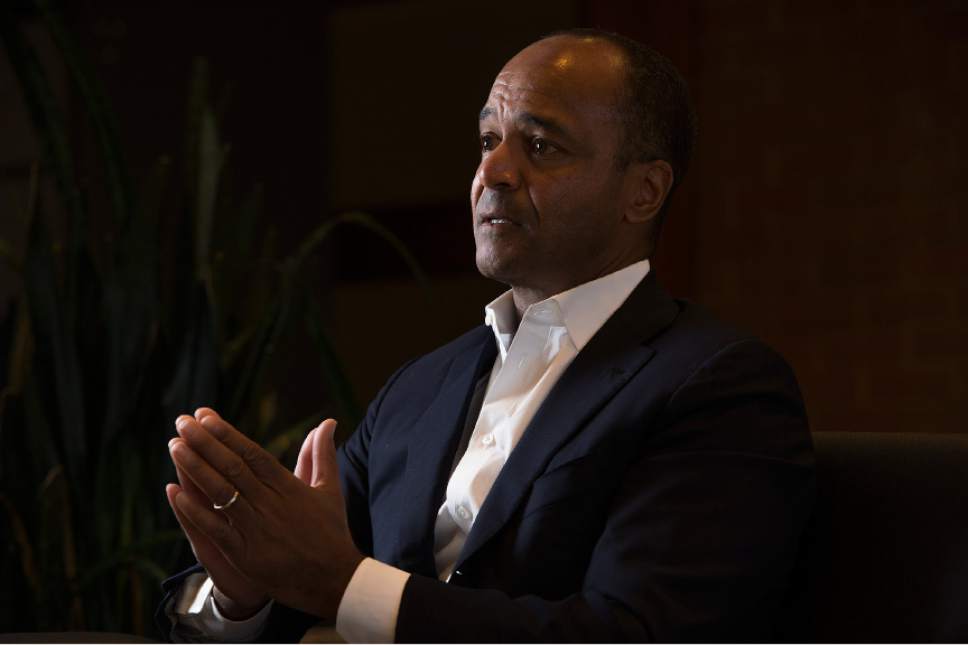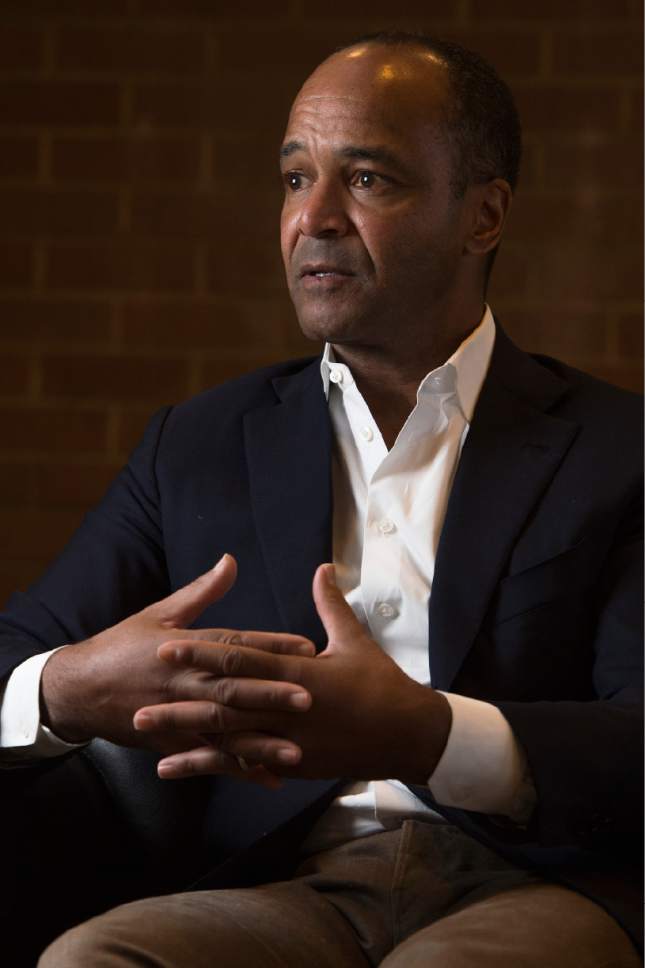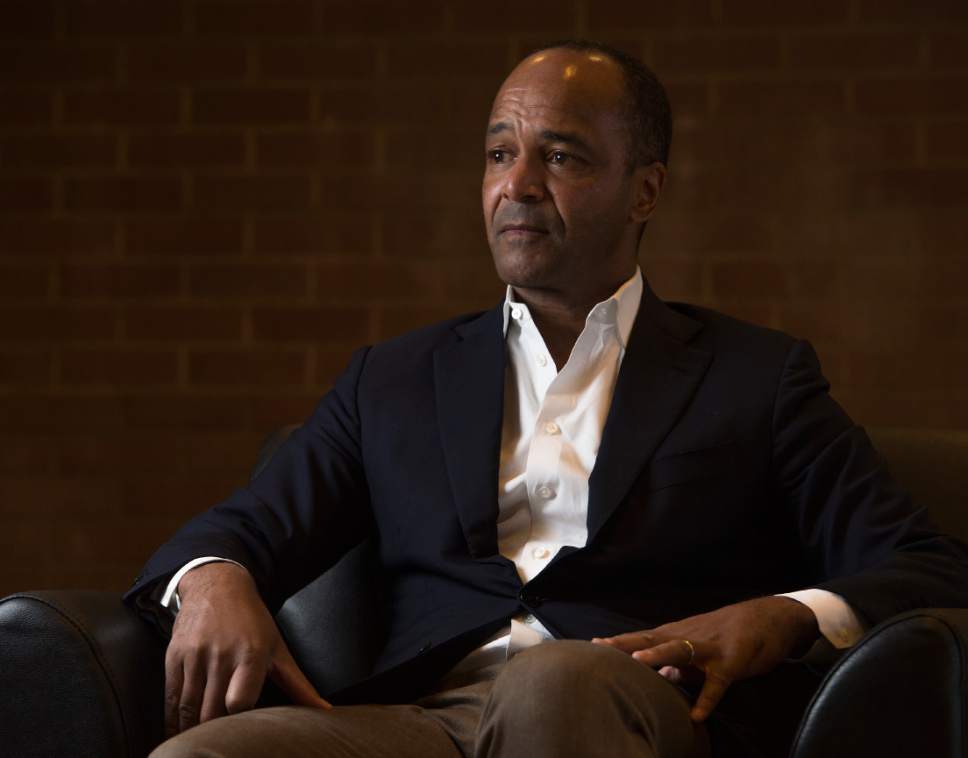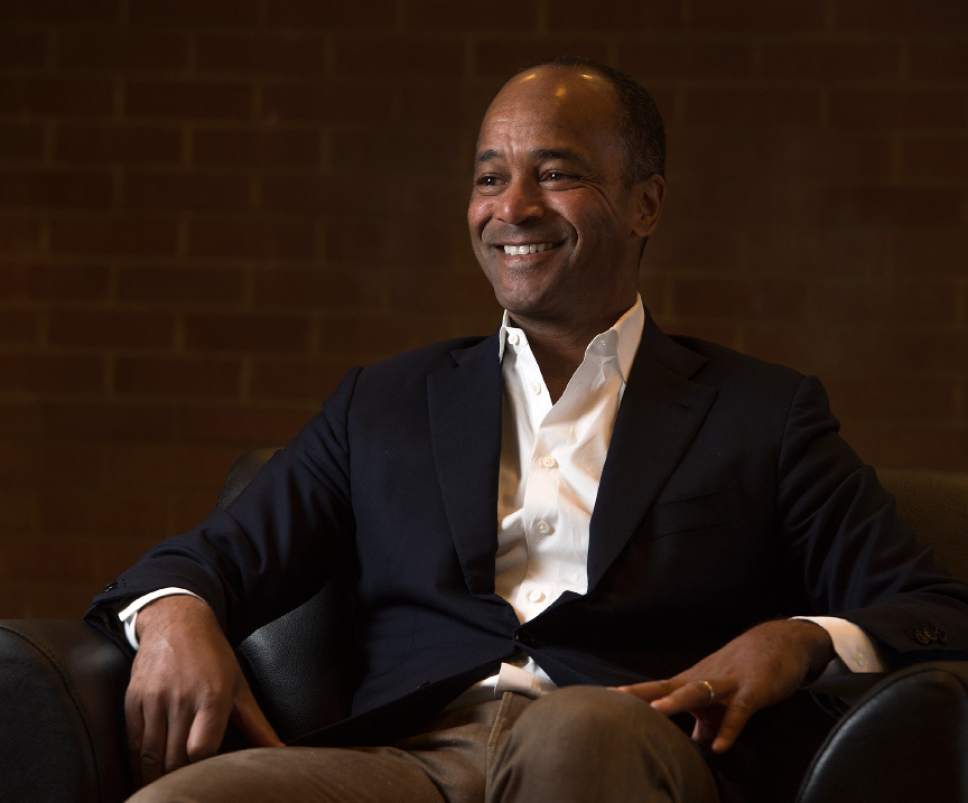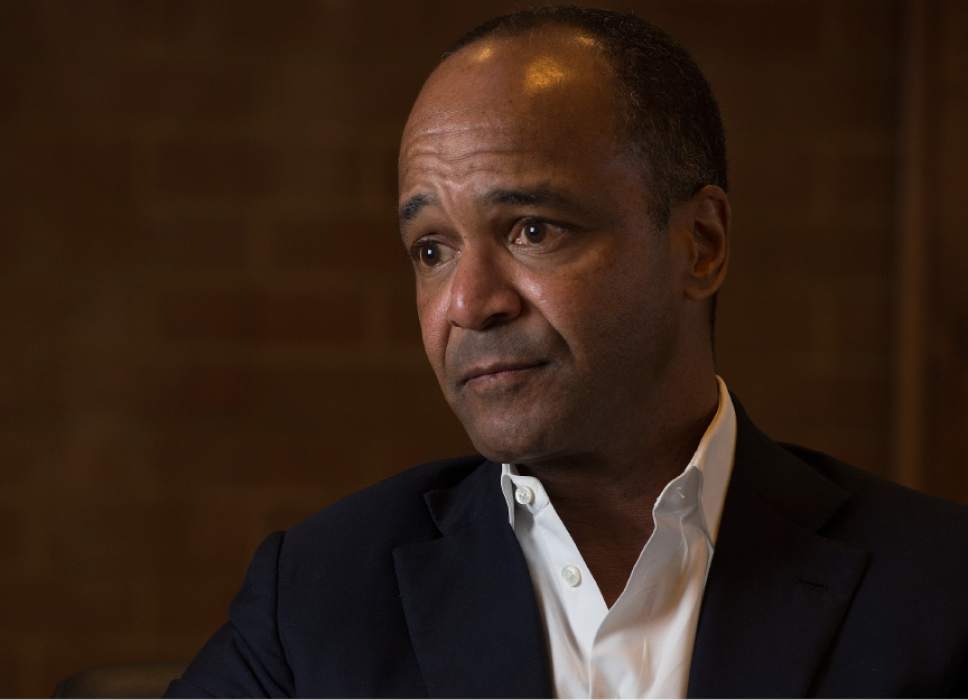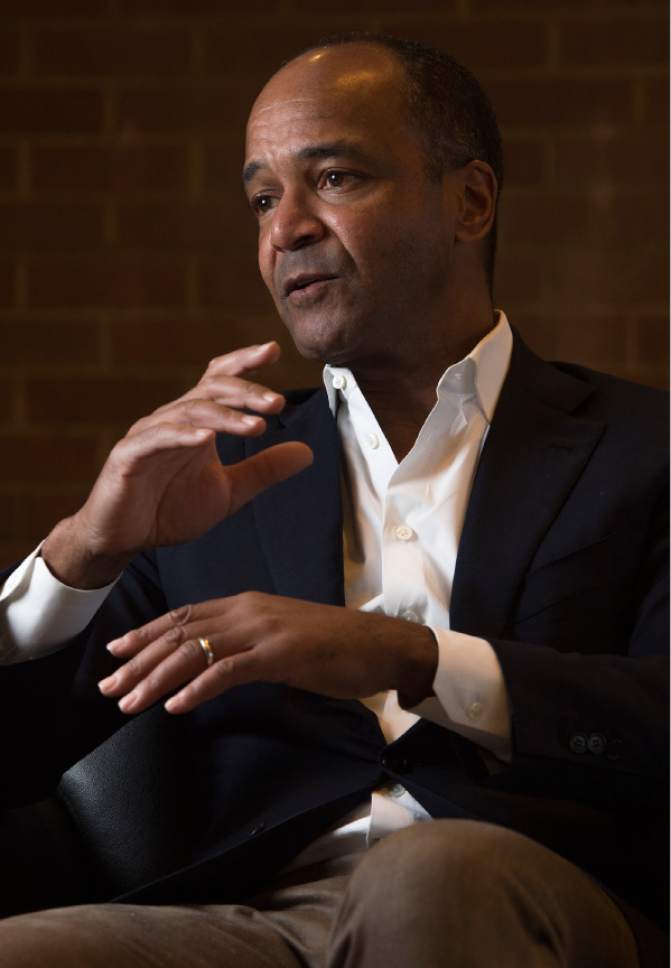This is an archived article that was published on sltrib.com in 2016, and information in the article may be outdated. It is provided only for personal research purposes and may not be reprinted.
Pierre-Richard Prosper has had tea with Afghan warlords. He's met with the family of a Bosnian war criminal in the hills of Montenegro, seeing no sign of the cover he was told he had. He's entered Iran three times without any form of electronic communication to negotiate the release of an American prisoner.
The U.S. government and others have sent Prosper to persuade some of humanity's fastest, loosest players that the time had come to fold. But few assignments could have been more nervy than the one he undertook as a young United Nations prosecutor.
Rwanda was a place where the breeze had been a reminder of piled corpses rotting nearby, where survivors were rendered mute by the horrors they had endured. Prosper represented the agency that, having seen all the signs of a coming massacre, had been unable to stop it. And he asked the victims for their trust.
What followed is the subject of a documentary, "The Uncondemned," that makes its local debut Friday at the Broadway Theatre in Salt Lake City. The film centers on Prosper's team and three witnesses key to the first-ever successful prosecution of rape as an act of genocide.
An estimated 1 million people were killed in Rwanda over 100 days in 1994, most of them Tutsis cut down by machete-wielding Hutu countrymen who'd been inundated with Tutsi-vilifying propaganda. Tens of thousands of women were raped in a systematic effort to leave the Tutsis broken and powerless.
Then 31, Prosper was no stranger to history's spotlight. He said he prosecuted as many as 22 murder cases at once amid Los Angeles' worst-ever gang violence in the early 1990s. He then became an assistant U.S. attorney and took on Colombia's infamous Cali cartel, among others.
He nonetheless was struck as he listened to an attorney who'd returned from a U.N. factfinding mission by the scale of the Rwandan atrocities. The attorney took an interest in Prosper — single, hungry for adventure and, as the son of Haitian immigrants, fluent in French. Months later, Prosper was invited to join a prosecution effort that he eventually would be tapped to lead.
Prosper said the first things he noticed upon landing in Rwanda were its verdant hills and bright colors, and the softness of its people. But the aftermath of genocide is "one of those things you just can't be prepared for," he said. He saw mass graves and a church where blood-stained clothes, wet and fresh, still hung on skeletons.
Nearly every surviving Tutsi woman had been raped. Many had been gang-raped or mutilated, impregnated and/or infected with HIV. Some had asked to be killed by their captors, who refused out of cruelty, and they now sat in corners, silent and expressionless.
As an L.A. prosecutor, Prosper was used to convincing stricken people that he could get them justice with their help. This was like that, he said, but multiplied. "Not only in sheer number, but in the depth of the evilness and inhumanity."
"I had to effectively apologize for the international community and then rebuild their trust and their confidence," Prosper said. "And then, once they gave it to you, you realize the weight that you're holding."
His team's target was Jean-Paul Akayesu, the charismatic mayor of a central Rwandan town who said he'd had no part in the carnage. While rape had been on the books as a war crime since the end of World War I, it never had been charged, Prosper said, until his team secured testimony that Tutsi women had been dragged to Akayesu's office.
One potential witness was murdered, along with his daughter and nine others. A Los Angeles Times article said Prosper transported his two dozen anonymous witnesses under cover of darkness. At the tribunal, Akayesu said they were liars.
But Prosper cast doubt on Akayesu's credibility when he made the mayor read from a previous, contradictory statement. The film suggests that this was the tipping point for the three judges, who sentenced Akayesu to life in prison.
It was an odd feeling, Prosper said. He didn't jump for joy. He was "deeply satisfied" that the witnesses had been believed, and that the survivors had gotten their promised justice. At the same time, "the judgment drove home and solidified the reality of what happened."
It was a few months before he felt fully recovered, he said.
"People would say, 'How was it?' And then there's that pause where you don't know if that's a serious question. Because there are some people who, when you start talking, you see their eyes glaze over. They would lose interest within two minutes. Then, there would be someone else that wanted to talk for hours. I could never find that happy medium."
Prosper went on to serve in the administrations of Bill Clinton and George W. Bush, appointed by the latter as ambassador-at-large for war crimes. He met with dozens of heads of state, he said, and represented the U.S. in middle-of-the-night negotiations with war criminals.
It was Prosper who, under orders, led a team that created the detention camp at Guantanamo Bay. Staying with his parents in upstate New York for Thanksgiving, he'd received a call saying 300 Taliban had been captured and needed to be detained outside the area of U.S. operations, and preferably, as it turned out, off the grid completely. "Pierre, they're yours," he recalls being told.
During the invasion of Iraq, Prosper helped compile three lists of Iraqi targets — the most-wanted "black" list popularized by a deck of cards. He'd visit Baghdad regularly, he said, working in the back rooms of a palace as the occasional mortar shell fell nearby. He regrets that U.S. authorities decided to completely rid the establishment of the ruling Ba'ath Party and sent many to the streets to sow discord.
He's settled, somewhat, since marrying University of Utah administrative employee Laura Snow and moving to Salt Lake City a decade ago. He now specializes in international government relations for Los Angeles-based Arent Fox. But his "settled" is relative: In October 2010, after 14 months of negotiations and three separate trips to Iran, he secured the release of a 71-year-old Iranian-American who had been imprisoned nearly three years on suspicion of supporting terrorism.
Prosper said his experiences have led him to wish world powers would draw an earlier line in the sand with wrongdoers like ISIS and Nigeria's Boko Haram. When U.S. cruise missiles destroyed a Sudanese pharmaceutical factory in August 1998, he said, "it sent a message."
"You could have done that in Rwanda. It could have been an empty warehouse. But everybody would have been like, 'Man, they're watching. They've got the capabilities. We'd better be careful.'"
Prosper said he was moved to tears watching the documentary for the first time. Witnesses who once were frail, afraid to look him in the eye, are now empowered, he said, "understanding what they've done for the world, for humanity, for women."
He hopes the film conveys the lasting effects that the actions of a few motivated individuals can have if they "decide to leave their comfort zone."
Friday's showing of "The Uncondemned" is sold out, but its run continues through Thursday.
Twitter: @matthew_piper


